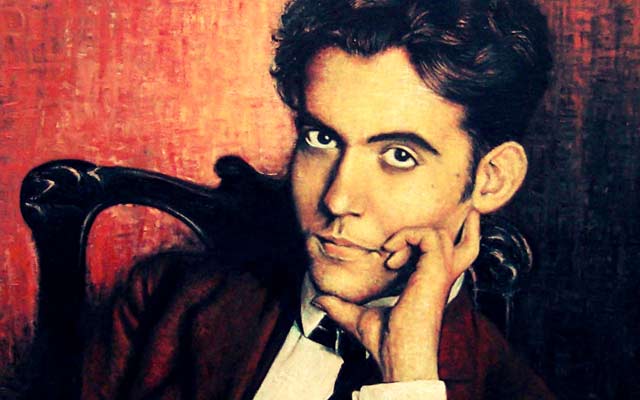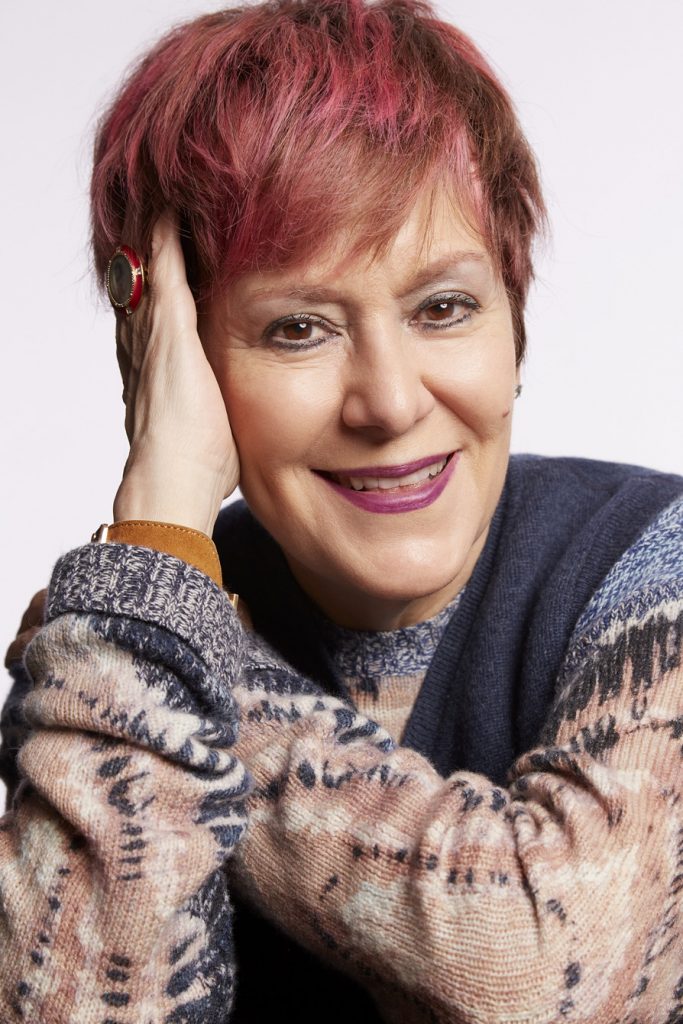Theory and Play of the Duende

The Center of Applied Jungian Studies Presents a Lecture Series on the Art of Individuation
Featuring Giannina Braschi on Lorca’s “Theory and Play of the Duende”
Saturday the 5th of November 2022
5PM London, 12PM Noon New York City (EST)
For every man, every artist called Nietzsche or Cezanne, every step that he climbs in the tower of his perfection is at the expense of the struggle that he undergoes with his duende, not with an angel, as is often said, nor with his Muse. This is a precise and fundamental distinction at the root of their work.
-Frederico Garcia Lorca

Theory and Play of the Duende by Lorca
Imagination starts in the void where nothing works.
Giannina Braschi

We will explore the relationship between different figures of artistic inspiration: the daemon, the duende, the angel, and the muses. With touch points from Federico García Lorca’s classic essay Theory and Play of the Duende, we will establish the difference between the duende and the daemon, which Lorca did not see because he did not have daemon, but duende. We will discuss the concept of a Hierarchy of Inspiration—and see how these figures come through different characters and artistic genres. We will also talk about voice—and how one can recognize in the voice whether it has duende or daemon—and how these figures can help to create new shapes, forms, and structures that lead to the creation of new genres. We will see how the creation of a new movement or a new generation differs from the creation of an artistic genre, which is built in space, rather than time. “Imagination starts in that space where nothing works. What is needed is to find that void that analysis tries to fill with theories so that we do not find the gap—but it is necessary to be acquainted with that void—and to not fear that space where nothing works the way it used to—because that is the space where possibilities take place. That is the space where the daemon creates the new,” says Braschi.
Brief Bio of Guest Speaker: Dr. Giannina Braschi
The United States Library of Congress calls Dr. Giannina Braschi’s writing “cutting-edge, influential, and even revolutionary.” Her best known books include Empire of Dreams, Yo-Yo Boing!, and United States of Banana. She writes on far-ranging subjects from immigration, economy, and colonialism to love, liberty, and creativity. The North American Academy of the Spanish Language honored Braschi in 2022 for her lifetime achievements in American literature written in Spanish, Spanglish, and English. She holds a Ph.D. in Hispanic Literatures from the State University of New York and has published on Cervantes, Garcilaso, Machado, Becquer, and Lorca. She has won awards and fellowships from the National Endowment for the Arts, the Ford Foundation, the Danforth Scholarship, the New York Foundation for the Arts, Instituto de Cultura Puertorriqueña, Rutgers University, PEN America, and Cambio16 News in Madrid. Her life’s work is the subject of a scholarly anthology of essays, entitled Poets, Philosophers, Lovers: On the Writings of Giannina Braschi, edited by Frederick Luis Aldama and Tess O’Dwyer (Pittsburgh, 2020). She was born in San Juan, Puerto Rico and is based in New York.
Art of Individuation Lecture Series 2022 Inspired by Lorca’s Duende
Art of Individuation / by Stephen Anthony Farah, MA
Art of Individuation: Art is the quintessential expression of the psyche and its desire for being. Through the artistic process the artist explores the questions of meaning, expression, and being. Art symbolises and through such symbolisation, represents the unconscious to reveal what was previously hidden from view. Art is a creative and generative act giving birth to something new, whilst, simultaneously, refining and reifying the psyche, continually seeking more congruent expression. Individuation arises out of a similar creative impulse. Individuation is an ongoing attempt by the subject to find ever more congruent, refined, and reified symbolic expressions of her unconscious psyche. The artist brings being into existence and into the world through her art. The individuating subject expresses her artistic impulse through her being in the world. Both are vehicles and modes of giving expression to the unconscious psyche through the creative imagination, and thereby facilitating the realisation of the Jungian “Self” or Blake’s “Regenerated Man”.
Federico García Lorca’s Theory of Duende: The Chthonic, the Bodily, and the Principle of Struggle in the Process of (Self-) Creation / by Dr Federico Bonaddio
This session will explore Lorca’s theory of duende, developed in his lecture, ‘Theory and Play of the Duende’, which he first delivered in Buenos Aires in 1933. It will consider its relation to his poetry and theatre, and particularly to the tension in his work between the imperatives of impersonal art—what José Ortega y Gasset called ‘dehumanized’ art—, in vogue in the 1920s, and his own preference for the human subject. It will consider how duende’s emphasis on the bodily and on performance related to Lorca’s longstanding interest in flamenco and how it represented a departure from the terms in which he had previously sought to define artistic processes. Above all, it will show how duende-inspired art can be understood as a mode of self-creation rooted in chthonic forces, in the bodily and in struggle; an art that Lorca considered to be especially characteristic of Spanish culture because of its intimate relationship with death.
Lorca’s Drawings: Art, Self, and the Unconscious / by Dr. Federico Bonaddio
In this session, we will consider Lorca’s drawings in the context of his evolving theories on art, paying particular attention to his lectures ‘Sketch of the New Art’ (1928) and ‘Imagination, Inspiration, Escape’ (1928-1930). We will consider the importance of his friendship with Surrealist painter Salvador Dalí and his own views on the merits and defects of Surrealist art. We will examine recurring patters across his drawings and consider how, if at all, they may give rise to symbolic interpretations. We will also consider the naivete of the drawings and the tension between their apparent spontaneity and the principles that underpinned Lorca’s conception of art and of the creative process, particularly his insistence on the necessity of form and his ambivalent attitude towards unconscious production. Above all, we will consider the extent to which his drawings may be considered revelatory of some authentic, inner self.
The Struggle of the Mutinous Human Spirit’: The Daimon Archetype in the Paintings of Mikhail Vrubel / by Cyril Coetzee
This richly slide illustrated lecture will examine Mikhail Vrubel’s feverish preoccupation with the theme of the Daimon throughout his career, giving attention to his many literary sources (Lermontov, Schopenhauer Nietzsche, Soloviev) and contextualising these ‘Daimon paintings‘ within the social milieu of the so-called ‘Silver Age’, the Symbolist period of Russian art and literature.
Particular attention will be given to the themes of Androgyny, ‘Longing’, Madness and of the ‘Dionysian impulse’ as well to a discussion of the creative tension between Pessimism and Mystical transcendence.
Individuation, performativity, and the Anthropocene / by Nobonke (Tossie van Tonder)
An auto-ethnographical journey of the self and the lesser-than-self. This seminar will be offered in a workshop format.
In and as the awakening Anthropocene we began to think of ourselves as people within a larger context. We became aware that our manner of observing and thinking which had been informed by our ever-growing historical position as central, took a “turn” of realisation that this anthropocentrism has not served us, nor our environment favourably. Moreover, it was not only dysfunctional, disorienting and pathologizing of the human beingness, the notion that we know because we know, was altogether in the wrong. This growing realisation and its effects have sanctified a new way of thinking, feeling, experiencing and moving. It opened up a cathartic vocabulary – fierce and intimate – of a humble embodiment of the decentred being, now merging freely with viruses, bacteria, pollutants, material toxicity, poverty, food insecurity, economic instability, political mayhem and overall dystopia. The sooner we embody the new materialism and their archetypes with a different presentation of: What are we for? the better we will be equipped to manage so-called futures of the interior.
Lorca, Duende, and Art / by Giannina Braschi
Imagination starts in the void where nothing works. (Giannina Braschi)
We will explore the relationship between different figures of artistic inspiration: the daemon, the duende, the angel, and the muses. With touch points from Federico García Lorca’s classic essay Theory and Play of the Duende, we will establish the difference between the duende and the daemon, which Lorca did not see because he did not have daemon, but duende. We will discuss the concept of a Hierarchy of Inspiration—and see how these figures come through different characters and artistic genres. We will also talk about voice—and how one can recognize in the voice whether it has duende or daemon—and how these figures can help to create new shapes, forms, and structures that lead to the creation of new genres. We will see how the creation of a new movement or a new generation differs from the creation of an artistic genre, which is built in space, rather than time. “Imagination starts in that space where nothing works. What is needed is to find that void that analysis tries to fill with theories so that we do not find the gap—but it is necessary to be acquainted with that void—and to not fear that space where nothing works the way it used to—because that is the space where possibilities take place. That is the space where the daemon creates the new,” says Giannina Braschi.
Marsilio Ficino: A rich guide for our times / by Thomas Moore
Marsilio Ficino (1433-1499) was a remarkable man, not just a thinker but a practitioner, in Renaissance Florence. He was devoted to a Platonic way of life and deeply interested in various forms of magic, which he defined as making use of untapped powers in nature. He used music, color, architecture, paintings, talismans, and even aromatherapy to help people deal with their problems and to enrich society. His goal was a soul-oriented culture. His broad education and interest in occult matters require careful translating and interpreting, but they show a way for us to transform our culture and humanize it in a profound way. His work is the perfect tonic for our society’s materialism and extensive narcissism, and it contains rich ideas for teachers, leaders and psychotherapists interested in the soul of the world.
Art of Individuation workshop and discussion / by AOI core faculty
In this workshop we will reflect on the themes and ideas that emerged in seminar serries to date and discuss their impact and significance. The space will be available to discuss both the seminar and the AOI application. Students can show and discuss their projects, bring issues or sticking points to the forum, and more generally offer feedback on their experience of the programme and art making process.
Goethe on Das Dämonische in life and in art / by Prof. Paul Bishop
In this presentation we shall briefly consider the ancient conception of the daimon, before turning to Goethe’s use of the conception of the the daimonic (das Dämonische) in his autobiography, Dichtung und Wahrheit (or Poetry and Truth). Here Goethe evokes the daimonic as a decisive factor both in the composition of his drama Egmont, but also as something we could describe as an existential principle. On the basis of our discussion of this passage, we shall then turn to the motif of the daimon in Goethe’s late, great work, Urworte.Orphisch (or Primal Word. Orphic), the first stanza of which is placed precisely under the sign of – the ΔΑΙΜΩΝ.
To learn about Theory and Play of the Duende in Giannina Braschi’s works, read “The Uncommon Wealth of Art” by Madelena Gonzales in Poets, Philosophers, Lovers: On the Writings of Giannina Braschi (2020).
